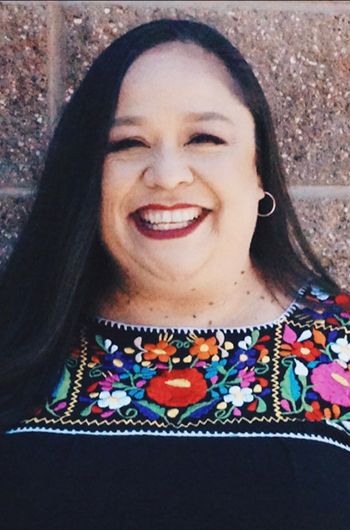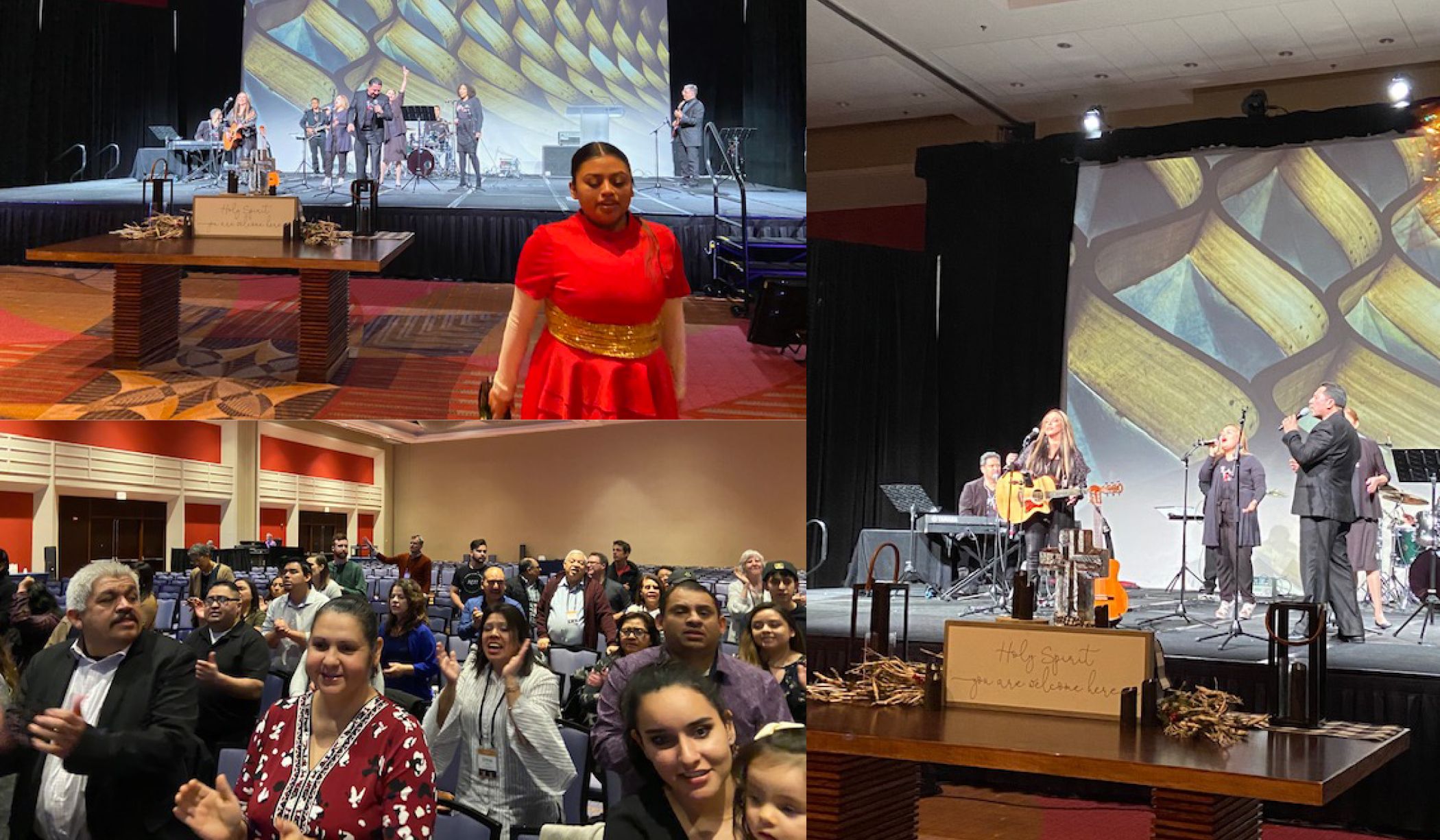Interview with Juana Nesta, President of Asociación Latina de la Iglesia del Pacto Evangélico
 Juana Nesta is President of the Asociación Latina de la Iglesia del Pacto Evangélico (ALIPE) and Pastor of the multicultural Stockton Covenant Church in Stockton, CA. In a recent interview, she shared insights on the challenges and opportunities facing Latino people.
Juana Nesta is President of the Asociación Latina de la Iglesia del Pacto Evangélico (ALIPE) and Pastor of the multicultural Stockton Covenant Church in Stockton, CA. In a recent interview, she shared insights on the challenges and opportunities facing Latino people.
What is your life like in Oakley, CA?
I never would have believed it growing up in Los Angeles, but we are currently on an acre of land 45 minutes outside of San Francisco. It is almost a farm as we have corn growing, chickens and a pony named Coco.
We have three daughters. Our oldest is in L.A., our middle is a college student currently home and our youngest is our miracle baby. She has special needs and was unlikely to survive past six months. Victoriah is now 10 years old. The pony is a therapy animal for her.
I am married to a church planting pastor and I have always been bi-vocational. I am co-pastor of our church while also serving as a teacher. I have taught preschool to junior high and am currently teaching first grade, and have for the last few years.
What did you learn during your time teaching during the stay at home order?
I had to learn to teach 24 first graders online. And I really feel more called to being in the classroom, more than ever. In person teaching really does make a difference.
Our district is 68% Latino. As time at home continued, I became even more aware of the disparities. There are some children I never connected with and am still concerned about them.

What can you teach us about what it is like to be a part your community?
The Latino community is very family oriented. Community is central. The ECC is an extension of our community, our family.
But we do feel unseen at times. All too often, since Latinos frequently exist on the margins and in the shadows, we get overlooked when racial issues are accessed. It would be tragic and irresponsible to repeat this mistake. So, looking forward we need to make sure that we are listening to the voices of the whole mosaic. For the Latino community, we must remain vigilant to address other issues such as immigration, poverty and police brutality.
Also, a word regarding language. The term “Hispanic” was a term handed to us. It has been used to describe Spanish-speaking countries. This term also carries a sense of dominance or the heaviness of the Doctrine of Discovery. It is a limiting, unhelpful term.
We would prefer to use the term “Latino.” This includes non-Spanish speaking cultures which are closely related, such as Brazil or Portuguese. Latino is a more inclusive word, hence, the reasoning behind the name change.
What are the needs of your community?
The biggest issue we face is immigration. It is very uncomfortable for some to discuss. We can say we love Jesus but then we pick and choose what to care about. But fear is alive and well in those I serve. I long for us to ask the question: How can we love our undocumented pastors, people and neighbors?
Within the system there are issues of justice and we need to rise up. We are trying to have a voice at the table within the denomination so that we can help make changes within the ECC and within our country.
Within the MOSAIC (ECC ethnic associations) we are trying to work together for change. The fact that the four associations exist (ALIPE, IMA, CAPA and AAMA) is a picture of how the Church can work for change. We are so different and come from so many different places, yet we are trying to empower one another and influence our denomination to be more reflective of the Kingdom.
One of the reasons my community has unique challenges is that many of us do not speak English. There is a language barrier on both sides.
But we are resilient and hard workers. We are valuable and worth a listen. It grieves me that they aren’t always given a chance to speak and are often overlooked.
What can you tell us about ALIPE?
It is the association for Latino pastors and lay leaders of the ECC. We are actually working on a publication about our history. But from what I know, the first Latino church was established in the early 1970s and the association that was then known as MHIPE (Ministerios Hispanos de la Iglesia del Pacto Evengelico) began sometime in the late ’70s or early ’80s. Currently we have about 80 Latino churches across the U.S., including church plants.
As the president of ALIPE, I also represent us at an international level with the participation in CIPE (Confraternidad de Iglesias del Pacto Evangélico), the network of Covenant churches across Latin America.
What would your encouragement for us be in these days filled with conflict, pain and challenges regarding justice?
The Dead Sea is rich in minerals and people can lie down in it because it is so full. However, it is dead. There is no life there.
We can learn and learn, get so full we can lie down in our knowledge. But we can remain dead. Instead, listen and learn. But live it.
The Six-Fold Test can help us to live it. As we have power, let us share and give it away. Share space. Share stories. Share power. Be accountable. Let’s help our churches remain accountable to one another, to the denomination. And I believe using the Six-Fold Test can help us to do this. Learn it. Live it.
What resources would you recommend for those who want to learn more?
- “Brown Church: Five Centuries of Latina/o Social Justice, Theology, and Identity” by Robert Chao Romero
- “Santa Biblia: The Bible Through Hispanic Eyes” by Justo L. Gonzalez
- “The Color of Compromise: The Truth about the American Church’s Complicity in Racism” by Jemar Tisby
- ECC Immigration Immersion Experience: tour into L.A. and Tijuana (transformational even for those of us who understand what happens and are living it everyday)